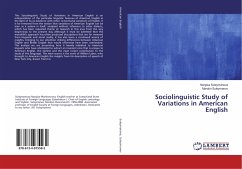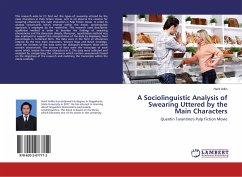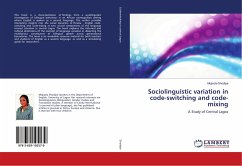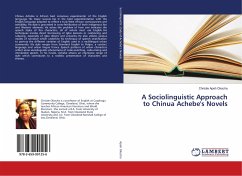
Sociolinguistic Variation
Theories, Methods, and Applications
Ed. by Robert Bayley and Ceil Lucas
Versandkostenfrei!
Versandfertig in 1-2 Wochen
50,99 €
inkl. MwSt.
Weitere Ausgaben:

PAYBACK Punkte
25 °P sammeln!
Why does human language vary from one person, or one group, to another? In what ways does it vary? How do linguists go about studying variation in, say, the sound system or the sentence structure of a particular language? Why is the study of language variation important outside the academic world, in say education, the law, employment or housing? This book provides an overview of these questions, bringing together a team of experts to survey key areas within the study of language variation and language change. Covering both the range of methods used to research variation in language, and the a...
Why does human language vary from one person, or one group, to another? In what ways does it vary? How do linguists go about studying variation in, say, the sound system or the sentence structure of a particular language? Why is the study of language variation important outside the academic world, in say education, the law, employment or housing? This book provides an overview of these questions, bringing together a team of experts to survey key areas within the study of language variation and language change. Covering both the range of methods used to research variation in language, and the applications of such research to a variety of social contexts, it is essential reading for advanced students and researchers in sociolinguistics, communication, linguistic anthropology and applied linguistics.














